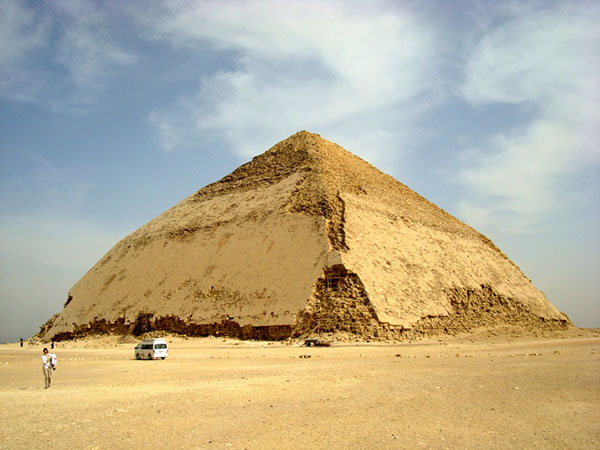The Ancient Near East was one of five locations in the world where civilization first emerged about five thousand years ago. (China, India, Mesoamerica and Egypt were the other areas.) Most of these early civilizations are termed "riverine" because they were based on river locations, and in the Near East, the early societies arose along the Tigris and Euphrates Rivers in Mesopotamia and the Nile River in Egypt.
Mesopotamia featured a succession of kingdoms/empires that rose, developed and then fell over time, and the area is generally considered by scholars to have lacked long-term sociocultural stability. In the long run, the Near East proved especially important to the development of Western civilization because it was there that the basic religious forms of the Western world evolved.
In Egypt, the Nile River formed the geographical focal point of the emergence of Ancient Egyptian society. It has often been pointed out by historians that Ancient Egypt formed more of a cultural, intact societal unit as opposed to the rise and fall of different ethnic societies in the Mesopotamian basin.
Let's take a quick look at some approximate timelines.
For Mesopotamia, there are different ways of dividing up (periodizing) Mesopotamian history. Here is one version.
- The Sumerian Era 3200-2000 (all dates BCE)
- Old Babylon 2000-1600
- Dark Ages 1600-1300
- Assyrians 1300-612
- New Babylon, or the Chaldean Renaissance 612-539
- Persia (Achaemenid Empire)
And now for Egypt
- Archaic Period 3100-2700
- Old Kingdom 2700-2200 (age of the pyramids)
- First Intermediate Period 2200-2000
- Middle Kingdom 2050-1800
- Second Intermediate Period 1800-1600
- New Kingdom 1570-1090 (age of empire)
- Remnants
I always ask students to consider the time involved with this Egyptian timeline. Just look also at the time spans here. In many cases, we are talking about centuries, a span of hundreds of years. And what I find even more fascinating are eras like "The Dark Ages" (300 years--longer than the U.S. has been around) or the "Second Intermediate Period" (200 years). In other words, we really don't have a lot of information about what happened during those times.
Some things to remember for each case
- Ancient Egypt is often credited with having discovered beer.
- The Ancient Egyptians built the pyramids!
- Ancient Egypt was around for a very long time.
- Important Mesopotamian inventions included the calendar--got to have that--astronomy and astrology, writing (cuneiform)--history begins with writing--the wheel--someone had to figure it out.
- These were highly-developed, class-stratified societies in both geographical areas.
The West has always had a rather peculiar view of its Near Eastern origins. Most history texts begin with a first chapter devoted to the history of the Ancient Near East (Mesopotamia) and Egypt, them a return to the region in a chapter devoted to the emergence of Islam in the seventh century and then, in a much later chapter, deal with nineteenth-century British imperialism (and the construction of the Suez Canal), maybe later there is added a few words on the creation of the "mandate" system by the League of Nations to supervise imperial control after World War I. These "standard" textbooks then tend to return to the area in chapter 26 for a discussion of the post-1945 Arab-Israeli conflict. It is strange to credit the area as being the origin of Western civilization, especially in regard to the Western religious experience, but then pay little attention to what actually happened in the region for long sweeps of time. And it is even stranger that many people today, especially in the United States and Europe, do not even view Islam, the dominant religion of the contemporary Near East, as being part of the Western experience.
One of my former students has made available some photos of Babylon.
Some recommended online lectures and websites
- Wikibooks: World History/Ancient Civilizations (check the sections on Ancient Mesopotamia and Ancient Egypt)
- The First Urban Civilizations (fairly extensive notes)
- Ancient History Encyclopedia: Mesopotamia
- The Land between the Rivers by Charles Kimball
- Clara Doley (former student) has created an excellent website on the Origins of Astrology in the ancient Near East.
- Class, Power and War among the Sumerians
- Ancient Nubians Made Antibiotic Beer by Jess McNally
- The Chicago Assyrian Dictionary Project ("a comprehensive dictionary of the various dialects of Akkadian, the earliest known Semitic language")
- Two websites that have some information on Egyptian creation myths: Comparison Between Egyptian and Hebrew Creation Myths and Egyptian Creation Myth of Heliopolis.
- For extra credit please suggest to your instructor a relevant website for this unit of the course. Send the title of the site, the URL and a brief explanation why you find the information interesting and applicable to the material being studied in this unit.
